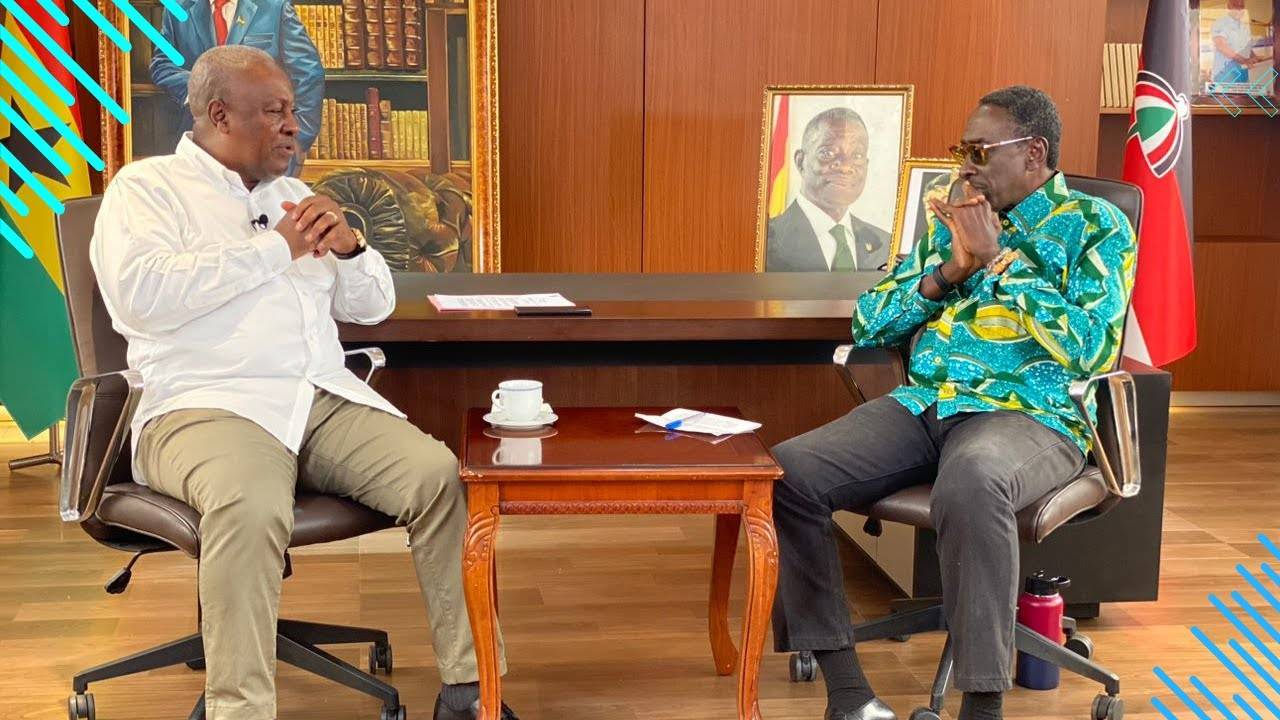A Titanic Rivalry: Mahama Reacts to Bawumia's 'I've Beaten Him Twice' Remark
Verbal sparring and sharp remarks are usual in the high-stakes realm of politics. The nation's attention has recently been drawn to a heated discussion between two political heavyweights, John Dramani Mahama and Dr. Mahamudu Bawumia. Bawumia's claim that he had defeated Mahama twice has elicited a harsh retort from the former president. In this article, we will look at the background of the remarks, the repercussions of such political sparring, and the larger implications for Ghana's political environment.
The Remark's Origin: The political duel began when Vice President Dr. Mahamudu Bawumia issued a public speech claiming to have defeated John Dramani Mahama twice. The reference was to the 2016 general elections, when Bawumia was Nana Akufo-Addo's running partner, and the 2020 elections, when he fulfilled the same role. Bawumia's statements were interpreted as a celebration of his political accomplishments as well as a reminder of his party's victory over Mahama's National Democratic Congress (NDC).
Former President John Dramani Mahama's Fiery Reaction: In response to Bawumia's remarks, former President John Dramani Mahama did not mince words. He retaliated, claiming that his name had never appeared on a ballot paper in elections against Bawumia. The inference was that, as the NDC's presidential candidate, he had been defeated not by Bawumia but by Nana Akufo-Addo, the opposing party's presidential candidate.
Political bravado vs. substance: Such rhetorical clashes are usual in politics, particularly during election seasons when passions run high. They are frequently viewed as attempts to demonstrate strength, impose dominance, and appeal to party loyalists. While political bravado may excite supporters' enthusiasm, it can also divert attention away from the actual concerns that are truly important to the electorate.
The Effect on Public Perception: For the typical Ghanaian voter, the exchange between Mahama and Bawumia may be perceived as political posturing and part of the normal back-and-forth of electoral campaigns. However, there is one exception.
There is a danger that such conversations may overshadow vital policy debates and specific proposals for resolving the nation's difficulties. Voters should demand more than hyperbole from their political leaders and focus on actual recommendations for the country's progress.
The Role of Civil Conversation: Civil conversation is critical to maintaining an environment of free dialogue and mutual respect in a healthy democratic society. Political leaders, particularly those in positions of power, should set a good example by refraining from using personal attacks or aggressive language. Constructive debates and conversations about policy issues can help voters make educated decisions.
Elections are an important part of democracy because they allow voters to exercise their freedom to choose their representatives and leaders. The outcome of elections will impact the country's orientation and governance in the future. Political leaders must approach elections with responsibility and humility, respecting the will of the people regardless of the outcome.
Unity and National Interest: As the political debate heats up, leaders must remember the value of unity and the larger national interest. Ghana's prosperity and development are dependent on the combined efforts of all individuals and leaders, regardless of political allegiance. Promoting national unity and establishing common ground are critical in dealing with the country's problems and striving towards a brighter future for all.
Conclusion: The conversation between John Dramani Mahama and Dr. Mahamudu Bawumia exemplifies the heated competition and heightened emotions that frequently follow political battles. While such words may energise their fans, the real litmus test will be the substantial policies and plans put out by the contenders to address the nation's concerns. As Ghana strengthens its democratic processes, political leaders must engage in civil debate, prioritise national interests, and show the humility to accept the will of the people through the ballot box. Finally, it is the collective obligation of all citizens to actively participate in the democratic process and influence their country's destiny.




No comments yet
Be the first to share your thoughts!